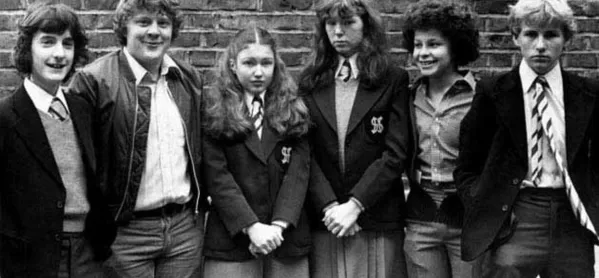The government’s decision to introduce times tables tests at key stage 2 and support grammar school expansion (article free to subscribers) are yet more evidence of a ministerial desire to return to the “good old days”.
But I’m not really sure they existed.
It’s hard to believe it but it is approaching 40 years ago that I was a newly qualified teacher. Firstly, the selection process was completely different. I was interviewed for the county council’s “pool” of school staff. Half a dozen local authority inspectors interviewed me and then selected a school for me.
No discussion on where it was - the only choice was whether you took it or not. I was duly given a job miles from where I was based and told when I could have a look. Visit over - boy was it short - I planned for my first class, a group of Year 3s (or should I say a 1st Year Juniors) in a newly amalgamated primary school. I was given the week it was open during the summer holidays to prepare my classroom.
The big Victorian room in which I was to teach had big oil heaters so the whole place stank. I put up elaborate displays which the caretaker said I should take down, as “we don’t do displays here”. I looked for policies. I looked for resources. There were none. There were, I discovered, lots of coffee tins filled with cotton reels and lolly sticks and wool, but books were lacking a bit. I did work hard that week and was genuinely excited for the start of the year and my career.
Early September came and into school I marched. I remember being early, keenly waiting to form new friendships. Yet no one appeared, and I mean no one, until 8.30am, when it was like a waterfall with staff gushing everywhere.
‘NQTs were an underclass’
It is probably hard for present-day teachers to understand but this was a time when NQTs were seen as an underclass, to be tolerated but not talked to. So I concentrated on the 38 children who had been given to me, with no other support. My year group colleague unlocked the cupboard with the published English scheme we did every day, and the published maths scheme we did, and the reading books we all had to read. Differentiation? That was children being on different pages. Art activities had to be on certain days as decided by the caretaker. The head called in after two or three days and told me “a good teacher is someone whose children don’t come anywhere near me”.
And yet I still bounced into that classroom: I had a bunch of eight-year-olds who appeared to have had the life sucked out of them, and I was determined they would leave the classroom smiling and laughing each day. And this I achieved.
The staffroom however was no place for laughter. First, you had to get through the smog that lay low over the room (the cigarette smokers all had a base - the pipe-smoker another), just to find a place to sit. Not as easy as it sounds as all the chairs and cups to that matter were allocated to individual staff. The level of educational talk, nil. Staff meetings, that’s for a different article. It was in those first few weeks that I decided to become a head, just so I could change what I was experiencing.
The term went on. On the face of it, my class and I read, did times tables, long multiplication, long division and art (on our allocated days). We recited poetry in assembly and sang Onward, Christian Soldiers and When a Knight Won His Spurs. However, in my classroom there was a quiet revolution going on. My children started to enjoy school, and subsequently became vocal and bubbly. Three weeks in and I was summoned by the head and senior management team. I duly listened as I was told to do as everyone else did because I was “inciting” the children, which would inevitably ruin the school…And so it went on.
Rose-tinted spectacles
I write about this not to reminisce. Many schools were like this before the national curriculum.
It’s all too easy to put on our rose-tinted spectacles and imagine the past as wonderful. Well I was there - and I can tell you, it wasn’t.
Education secretary Nicky Morgan and her team seem to genuinely believe that these were the days to aspire to, but I can tell you one thing for certain: our children are so much better educated today. Our teachers teach at a standard out of all recognition to previous generations.
These days, I find myself in genuine awe of the skill level new teachers possess and their natural ebullience and positive attitude. As soon as one joins my school they add value and their presence invariably moves the thinking of other staff forwards.
Some experienced teachers might tell you that there was less stress without Ofsted or the national curriculum, but in its way this actually created its own stress.
Looking back to a golden age may appeal to politicians, but it’s not what’s right for our profession. Or for our pupils.
Colin Harris is headteacher of Warren Park Primary School in Havant, Hampshire
Want to keep up with the latest education news and opinion? Follow TES on Twitter and like TES on Facebook




